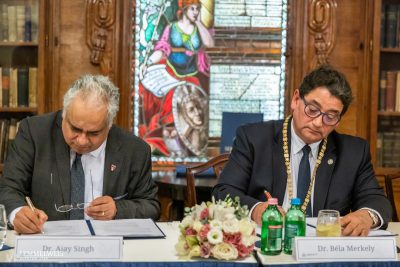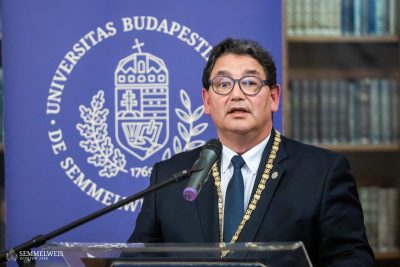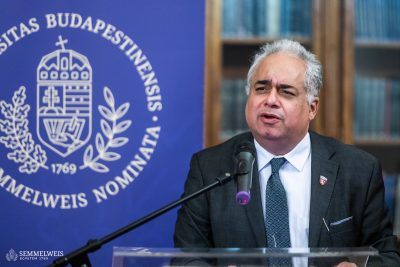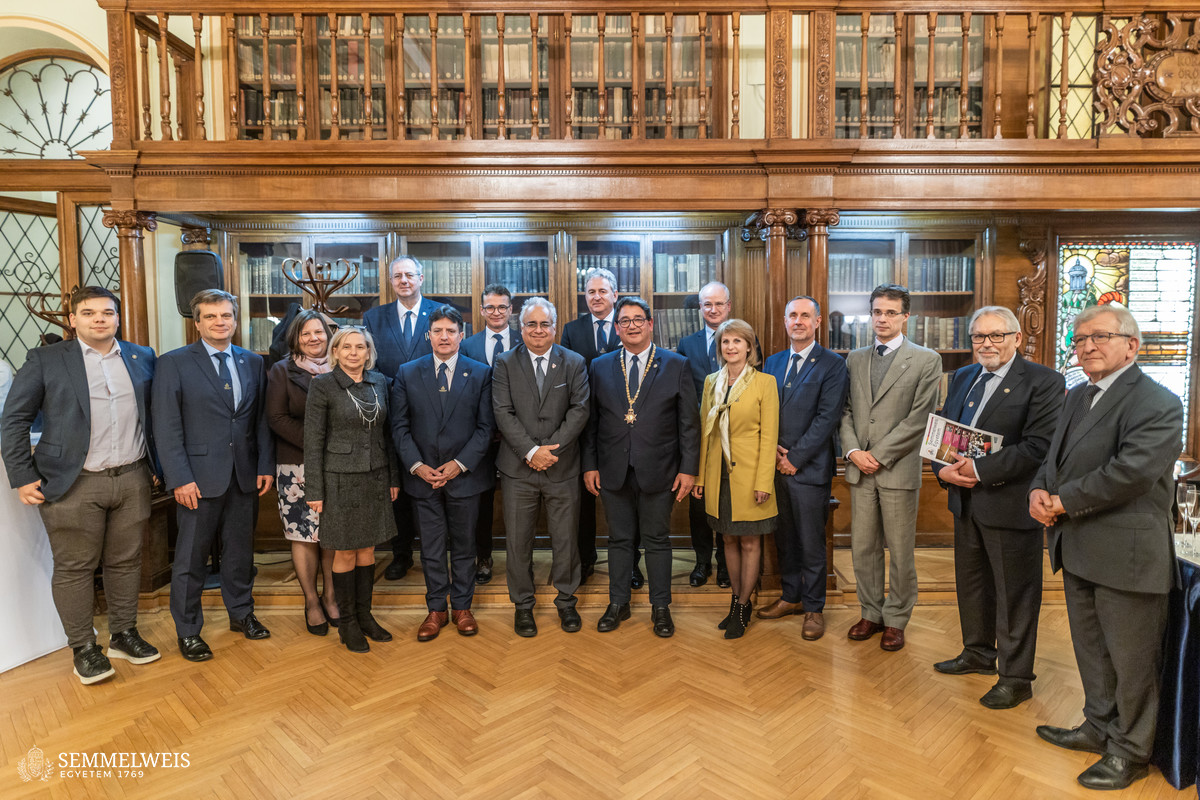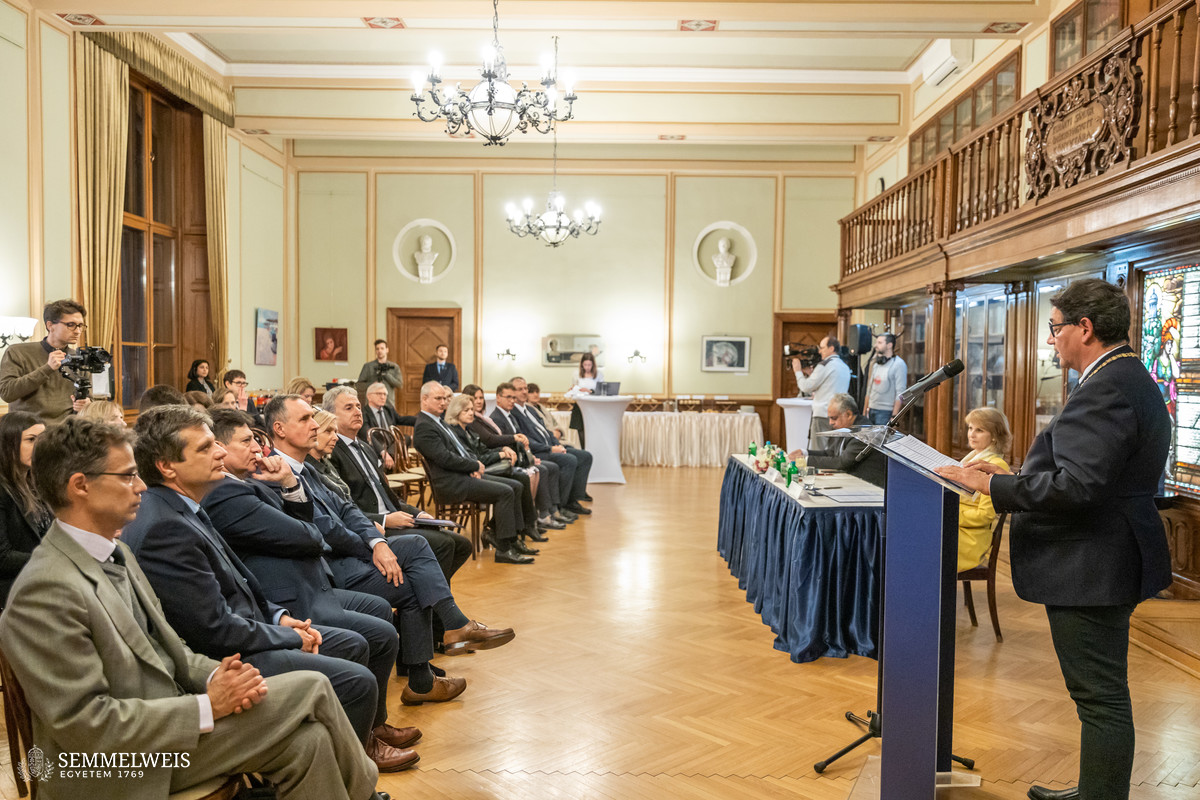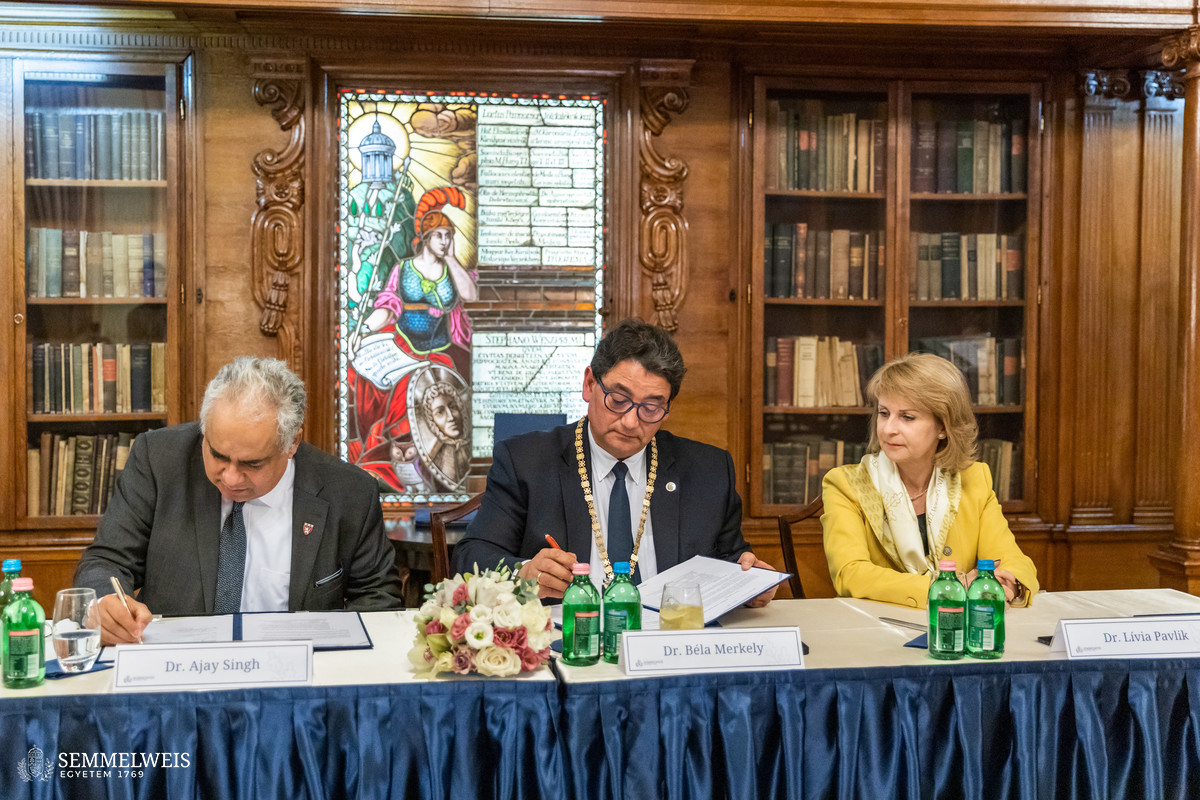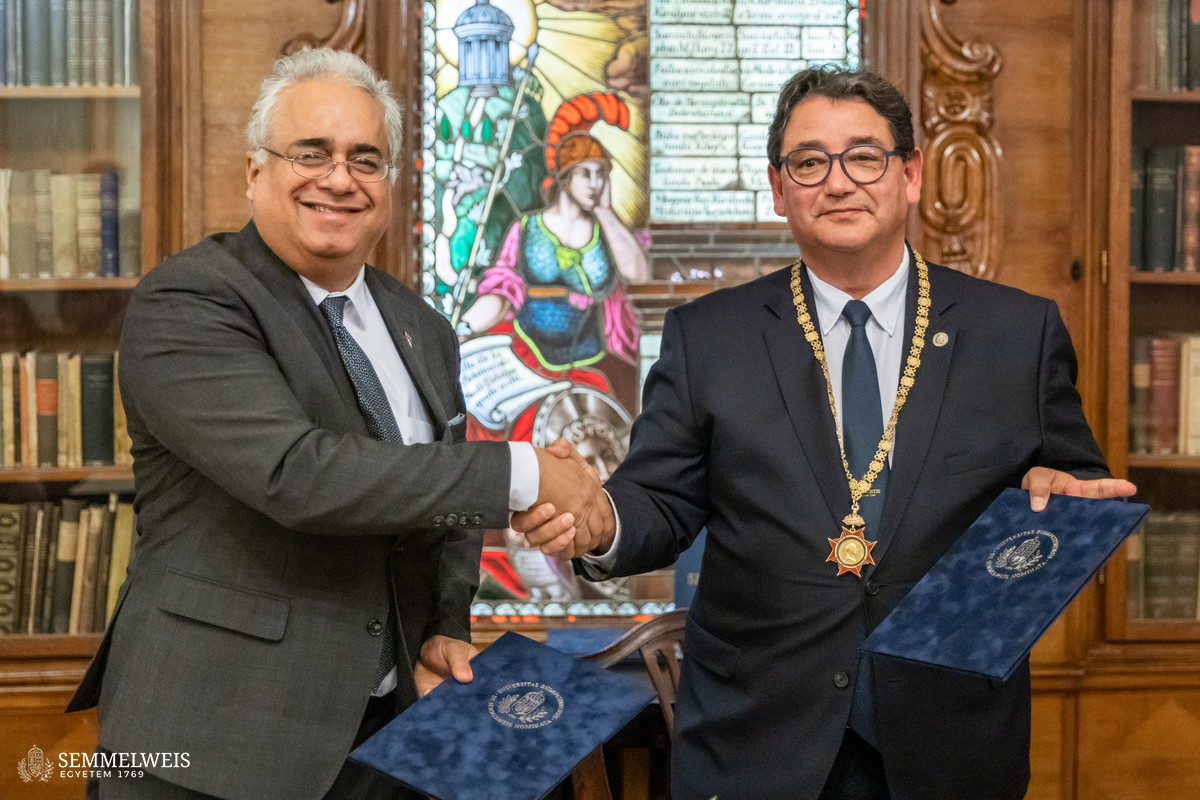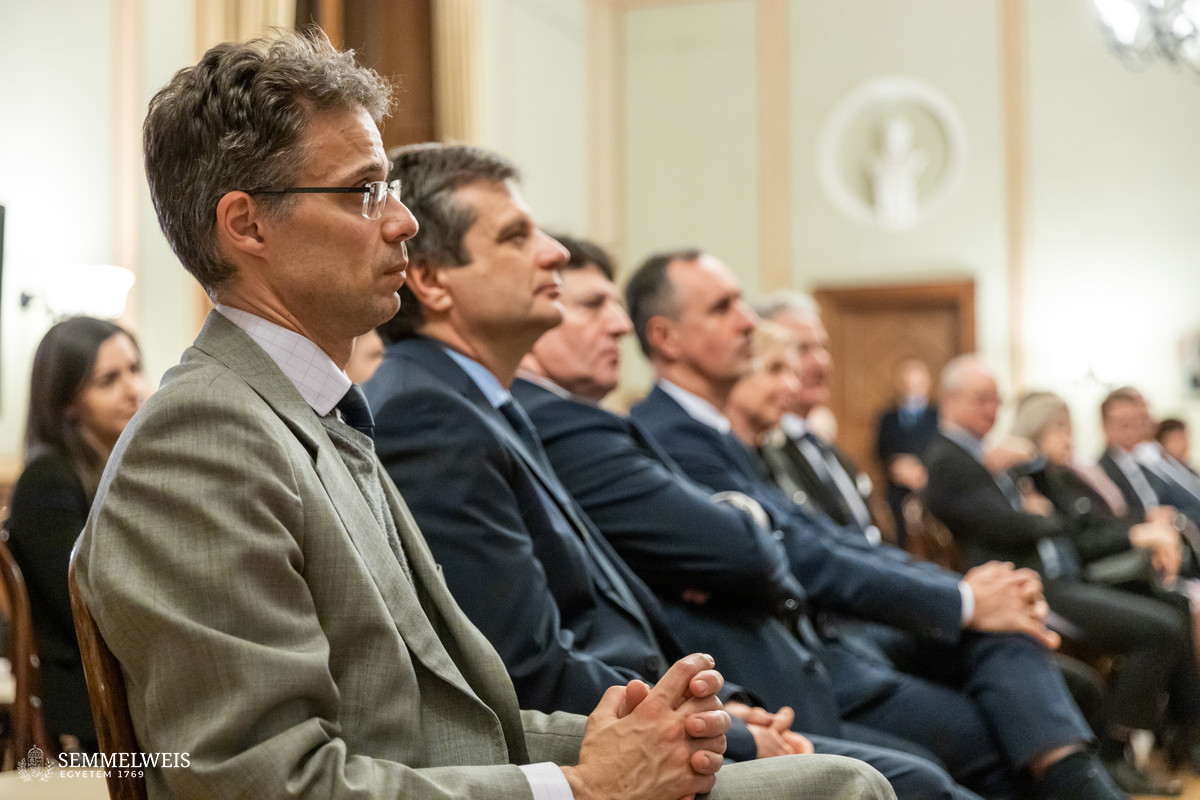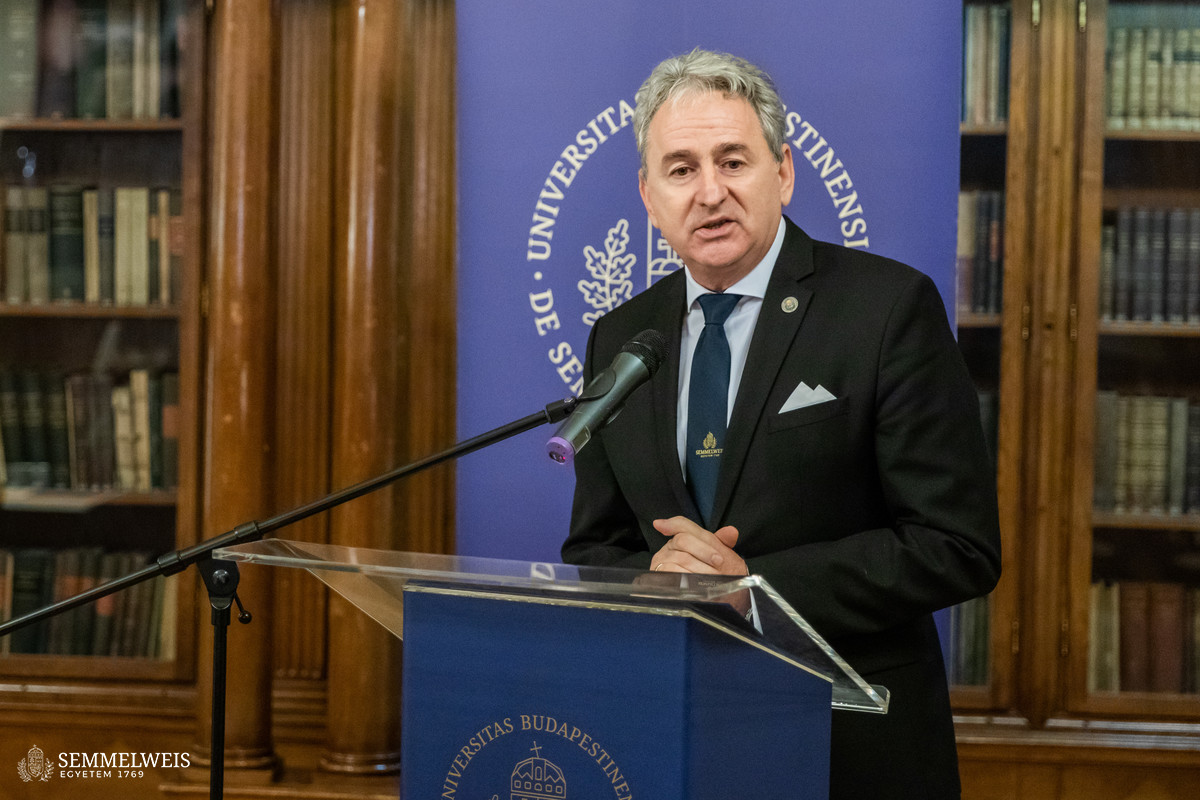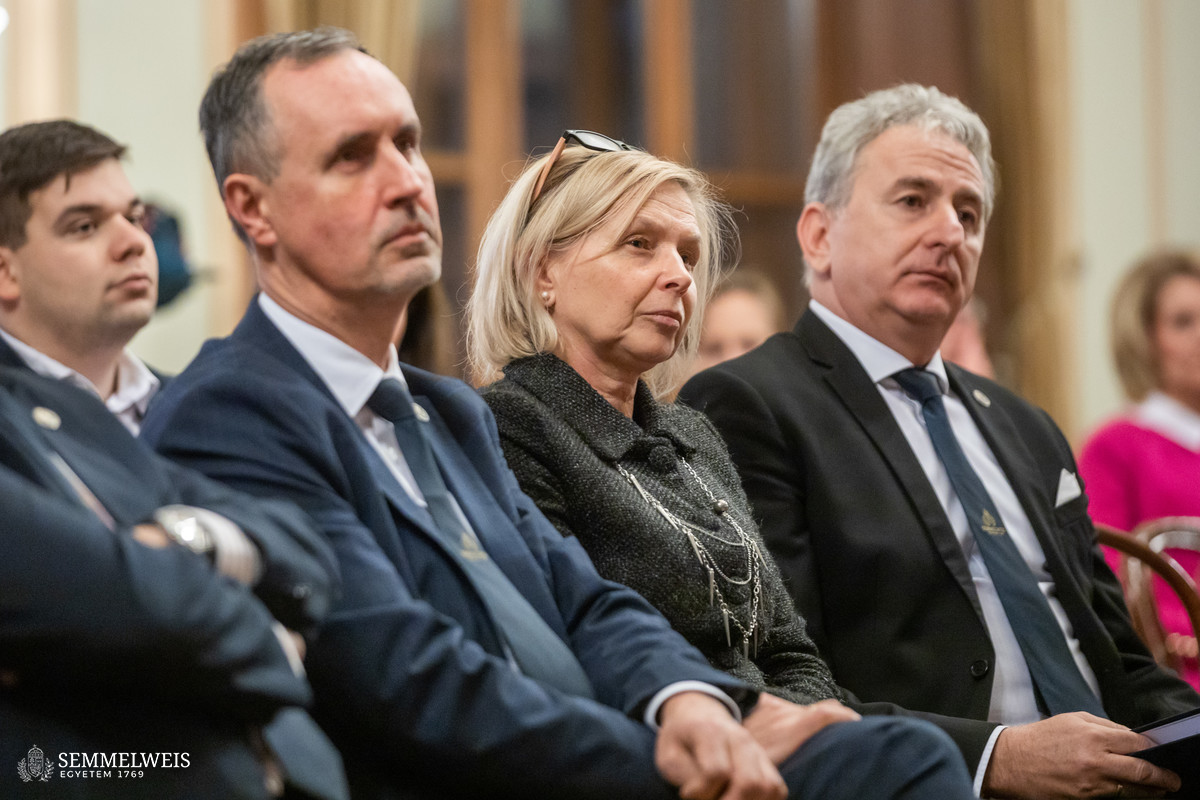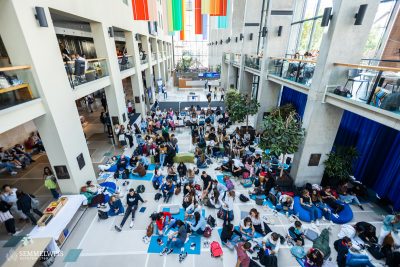The leadership of Semmelweis University signed a letter of agreement with Harvard Medical School. Under the terms of that, Harvard Medical School Postgraduate Medical Education (HMS PGME) will design and deliver an educational program in the field of clinical research for Semmelweis University. HMS’s Central Europe Clinical Scholars Research Training program will kick off in July 2023 and run through June 2026.
Semmelweis University will contribute 50% of the tuition costs for fifty participants in each annual program, or $250,000 per year for this purpose. The program is also open to candidates from neighbouring countries in the Central and Eastern European region.
The curriculum will help participants to develop skills essential to pursue high-quality clinical research, including epidemiology, biostatistics, ethics, and leadership. In this nine-month program, learners will actively participate in live workshops and webinars, complete individual and team assignments, and independently engage with hours of on-demand, recorded lectures. They can expect to spend an average of 7-10 hours per week with the program content and projects. Three residential workshops anchor the program: Workshop 1 in Budapest, Workshop 2 online, and Workshop 3 in Boston.
Opening the signing ceremony in Budapest, Dr. Béla Merkely, Rector of Semmelweis University emphasized: altough the two instituitons have different endowments, roots and cultures, they are separated geographically by an ocean, but they share a common goal, their mission and principles are the same: to provide the best possible knowledge at the highest possible level. To care for their patients using the most modern techniques and technologies available. To advance science and contribute to bringing the results of research and innovation to as many people as possible, and to ensure that as many people as possible benefit from their results.
“Thanks to this joint training, through its participants, scientific cooperation between the United States and our region can be strengthened even further,” he said, pointig out that participation in the international academic and scientific circulation, cross-border partnership is one of the most important missions of Semmelweis University and its main strength at the same time.
„The success of our collaborations is demonstrated by student and teaching mobility programs, clinical research and joint publications. I am pleased to say that we have also successfully collaborated with Harvard University in the past, so the current agreement has a history,” he added.
Dr. Béla Merkely also reminded that Semmelweis University has become the best university not only in Hungary, but also in Central and Eastern Europe: in the latest Times Higher Education rankings it is 236th, the best in the region. And in the field of cardiology and cardiovascular medicine, it is ranked 43rd in the US News Best Global Universities ranking. “Therefore, the goal we have set for ourselves with humility and determination is to become one of the top 100 medical universities in the world and one of the top 5 in Europe. In the league where Harvard belongs,” he said.
Dr. Ajay Singh, Senior Associate Dean for Postgraduate Medical Education at Harvard Medical School emphasized that clinical research fuels health care innovation and enables improved patient outcomes.
“By making high-impact educational opportunities available to health care professionals around the world, we advance the HMS mission to nurture a diverse, inclusive community dedicated to alleviating suffering and improving health and well-being,” he said.
The program will require a time commitment of about 7-10 hours a week that participants spend at webinars, engaging in individual and team assignments. Three residential workshops – one in Budapest, one in Boston and one online – will also be delivered. Participants who have satisfactorily completed the program requirements shall receive a Certificate of Completion signed by the course director(s).
Rita Kónya, Zsófia Végh, Gábor Kiss
Photo: Bálint Barta – Semmelweis University
